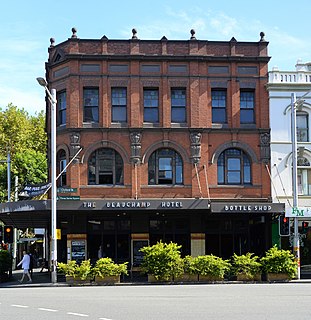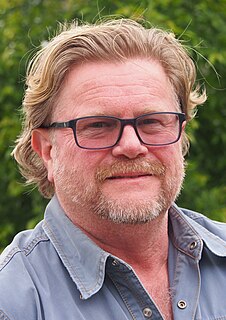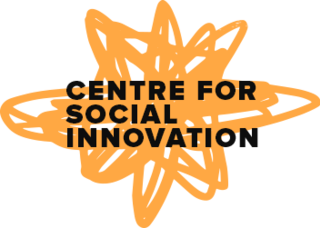Related Research Articles

Meetup is a social media platform for hosting and organizing in-person and virtual activities, gatherings, and events for people and communities of similar interests, hobbies, and professions. It was founded in 2002 by Scott Heiferman and four others. The company was acquired by WeWork in 2017 and remains headquartered in New York City. WeWork sold it to AlleyCorp, an early stage NY-focused venture fund and incubator, in March 2020.

Darlinghurst is an inner-city, eastern suburb of Sydney, New South Wales, Australia. Darlinghurst is located immediately east of the Sydney central business district (CBD) and Hyde Park, within the local government area of the City of Sydney. It is often colloquially referred to as "Darlo".
The United Nations Association in Canada (UNA-Canada) is an historic, national charitable organization providing the leading policy voice on multilateralism in Canada. Established in 1946, UNA-Canada was a founding member of the World Federation of United Nations Association.
A social enterprise is an organisation that applies commercial strategies to maximize improvements in financial, social and environmental well-being. This may include maximizing social impact alongside profits for co-owners.

Social entrepreneurship is an approach by individuals, groups, start-up companies or entrepreneurs, in which they develop, fund and implement solutions to social, cultural, or environmental issues. This concept may be applied to a wide range of organizations, which vary in size, aims, and beliefs. For-profit entrepreneurs typically measure performance using business metrics like profit, revenues and increases in stock prices. Social entrepreneurs, however, are either non-profits, or they blend for-profit goals with generating a positive "return to society". Therefore, they use different metrics. Social entrepreneurship typically attempts to further broad social, cultural and environmental goals often associated with the voluntary sector in areas such as poverty alleviation, health care and community development.
Social innovations are new social practices that aim to meet social needs in a better way than the existing solutions, resulting from - for example - working conditions, education, community development or health. These ideas are created with the goal of extending and strengthening civil society. Social innovation includes the social processes of innovation, such as open source methods and techniques and also the innovations which have a social purpose—like activism, virtual volunteering, microcredit, or distance learning. There are many definitions of social innovation, however, they usually include the broad criteria about social objectives, social interaction between actors or actor diversity, social outputs, and innovativeness. Different definitions include different combinations and different number of these criteria. Transformative social innovation not only introduces new approaches to seemingly intractable problems, but is successful in changing the social institutions that created the problem in the first place.
Public participation, also known as citizen participation or patient and public involvement, is the inclusion of the public in the activities of any organization or project. Public participation is similar to but more inclusive than stakeholder engagement.

David Cappo AO is a social policy and reform advocate and Roman Catholic priest based in Adelaide, South Australia. As well as his ongoing work in Australia, Cappo is an advisor on programs in the United States to reduce homelessness and develop local solutions to social problems.

Gregory Alan Mackie is a South Australian cultural advocate and entrepreneur who has worked to promote the arts and culture in Australia. He was an elected Councillor at the Adelaide City Council. He was co-founder and was managing director of independent bookshop Imprints Booksellers (1984–2007), served on many public bodies, including Arts SA and Adelaide Writers' Week, and founded the Adelaide Festival of Ideas in 1999.

Social finance is a category of financial services which aims to leverage private capital to address challenges in areas of social and environmental need. Having gained popularity in the aftermath of the 2008 Global Financial Crisis, it is notable for its public benefit focus. Mechanisms of creating shared social value are not new, however, social finance is conceptually unique as an approach to solving social problems while simultaneously creating economic value. Unlike philanthropy, which has a similar mission-motive, social finance secures its own sustainability by being profitable for investors. Capital providers lend to social enterprises who in turn, by investing borrowed funds in socially beneficial initiatives, deliver investors measurable social returns in addition to traditional financial returns on their investment.
Youth engagement is the sentiment young people feel towards a particular person, activity, place or outcome. It has been a focus of youth development, public policy and social change movements for at least forty years. According to a Cornell University program, "Youth engagement is one of the buzzwords in the youth development field. Similar terms are youth voice, youth involvement, youth participation, and youth in governance."
Global Entrepreneurship Week (GEW) is an international initiative that introduces entrepreneurship to young people in six continents. GEW emerged in 2008 as a result of Enterprise Week UK and Entrepreneurship Week USA 2007. Since its creation, more than 10 million people from roughly 170 countries have participated in entrepreneurship-related events, activities and competitions during GEW.
The Office of Social Innovation and Civic Participation was an office new to the Obama Administration, created within the White House, to catalyze new and innovative ways of encouraging government to do business differently. Its first director was the economist Sonal Shah. The final director was David Wilkinson.

Ronni Kahn AO is an Australian social entrepreneur, best known for founding the food rescue charity OzHarvest.

The Centre for Social Innovation is a social enterprise based in Toronto, Canada. It specializes in the creation of shared workspaces for people or organizations with a social mission. It has two locations in Toronto that serve as shared workspaces, innovation labs and community centres. These buildings offer private offices, private or shared desks, and spaces to hold meetings and events.
An edit-a-thon is an event where editors of online communities such as Wikipedia, OpenStreetMap, and LocalWiki edit and improve a specific topic or type of content. The events typically include basic editing training for new editors and may be combined with a more general social meetup. The word is a portmanteau of "edit" and "marathon". An edit-a-thon can either be "in-person" or online or a blended version of both. If it is not in-person, it is usually called a "virtual edit-a-thon" or "online edit-a-thon".
Civic technology, or civic tech, enhances the relationship between the people and government with software for communications, decision-making, service delivery, and political process. It includes information and communications technology supporting government with software built by community-led teams of volunteers, nonprofits, consultants, and private companies as well as embedded tech teams working within government.

HackerNest is a not-for-profit organization and global movement founded on January 11, 2011. The organization unites local technology communities around the world through community events and socially beneficial hackathons to further its mission of economic development through technological proliferation. It is Canada's largest, most prolific technology community with growing international reach.

NASA International Space Apps Challenge is annual NASA's global hackathon, first held in April 2012, and serves as innovation incubation and civic engagement program. NASA and its partners put out challenges relating to current work for which space enthusiasts around the world of all backgrounds can develop innovative solutions, particularly focusing on use of NASA data and promoting education. The project, formerly run by NASA's Office of the Chief Information Officer, is part of NASA's Earth Science Mission Directorate and is a part of the Open Government Initiative founded under President Barack Obama "creating an unprecedented level of openness in Government." It also fulfills the United States’ commitments to the Open Government Partnership.
The World Forum for Democracy is a gathering each November in Strasbourg, France to debate the complex challenges facing democracies today and foster democratic innovation. The Forum is hosted by the Council of Europe and brings together members of civil society, political leaders and representatives of business, academia, media and professional groups. Past editions have revolved around themes such as "Bridging the gap: democracy between old models and new realities", "Re-wiring Democracy: connecting institutions and citizens in the digital age" and "From participation to influence: can youth revitalise democracy?".
References
- ↑ TACSI - Solved Archived April 14, 2013, at the Wayback Machine . Retrieved on 07 August 2013
- ↑ "Australia’s Most Innovative Solutions to Social Challenges". Pro Bono Australia News, 24 November 2010. Retrieved on 07 August 2013.
- ↑ TACSI - 2010 BOLD IDEAS BETTER LIVES CHALLENGE Archived July 8, 2013, at the Wayback Machine
- ↑ TACSI - Challenge Paper Archived April 12, 2013, at the Wayback Machine
- ↑ "AroundYou Evaluation Report". Flinders University, July 2012. Retrieved on 07 August 2013
- ↑ "City Adopts Creative Bent To Revive Oxford Street". Sydney Morning Herlad, 08 January 2012. Retrieved on 07 August 2013
- ↑ ["Oxford Street Revitalisation [ permanent dead link ]"] - Sydney 2030
- ↑ "Archived copy". Archived from the original on 2013-08-07. Retrieved 2013-08-07.
{{cite web}}: CS1 maint: archived copy as title (link)